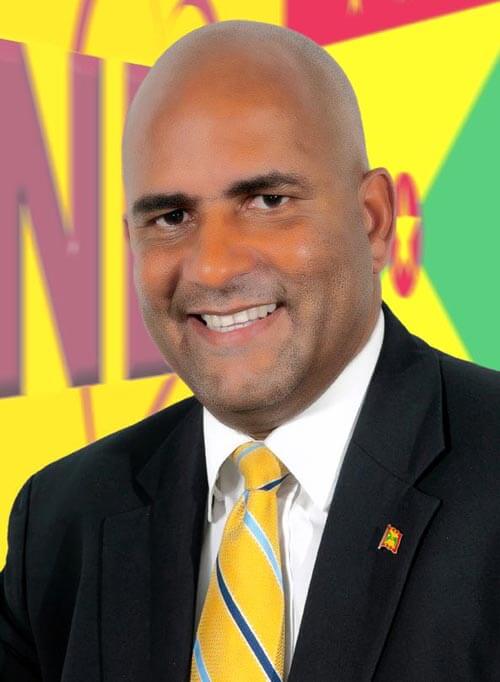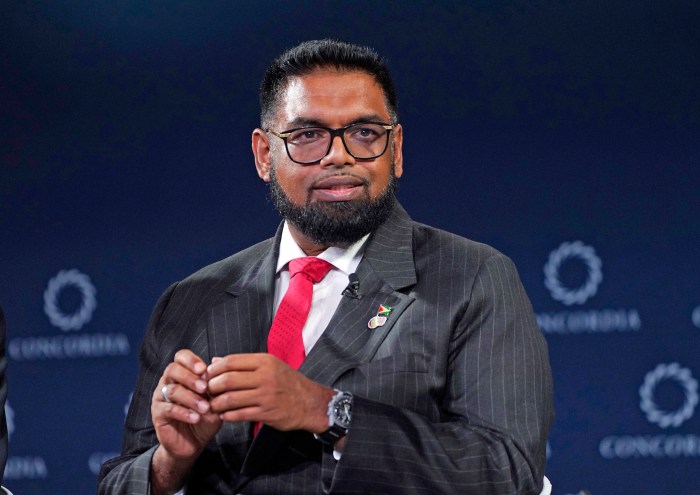Grenada’s opposition New National Party led by Keith Mitchell, the former prime minister — now leader of the opposition, is taking advantage of internal discord within the ruling party to call for a vote of no-confidence.
On April 30, Mitchell’s NNP announced it had filed a motion calling for a vote of no confidence in Prime Minister Tillman Thomas, following the resignation of Peter David a senior minister, amid continued in-fighting in the incumbent National Democratic Congress (NDC).
Mitchel told a news conference in St. George’s, the Grenadian capital, that the motion would be debated at the next sitting of the Parliament due this month, and that it had been filed on April 27 ahead of the resignation of the tourism, civil aviation and culture minister. The NNP, which controls four of the 15 seats in the House of Representatives, is seeking a special sitting of the House for a vote on the motion.
“We, as a responsible opposition, took the decision to file a vote of no confidence in the leadership of the country. The Speaker (George James Mc Guire), in his own right, decided that, in the context of the Standing Orders, that we must have at least six MPs to request a special sitting,” Mitchell said.
“The motion will go as is, but will not be a special sitting. If we are able to get support from two more members, then we can ask for a special sitting of the House,” he added.
The motion accuses Thomas, 66, of “encouraging internal division and strife within his government since 2008,” when the NDC won the general elections.
The motion also comes a few days after NDC chairman Stanford Simon and a group of NDC elders accused Thomas of dividing his own party.
The five senior NDC members, however, said they were “working hard” to mend the party’s expanding rift, possibly by “shedding” some dissident members.
“It may mean the emergence of an NDC that may have to shed some individuals who refuse to abide by the democratic principles, which govern the way we carry out the business of the party,” they said.
“We recognize that polarization has set in, and while the party is functioning according to the democratic norms enshrined in its constitution, there are others in the party who are on a divergent course,” the elders added.
They said the team, including senior minister Denis Lett and former party chairman Colin La Barrie, could not deny the perception of a division within the government and party.
Thomas has confirmed a division within the NDC. The rift appeared to widen when Minister for Information, Sen. Glen Noel, accused his Cabinet colleagues of being part of a plot to remove the prime minister.
But the senior NDC officials said there was no truth to such statement.
“The Cabinet members and others who have not seen eye to eye with the prime minister on some issues have been labeled as a ‘gang’ whose aim is to unseat the PM (prime minister). This is a falsehood,” they said.
“No one is challenging (Prime Minister Thomas) for leadership. The issue is the way he treats and labels those with viewpoints other than his,” they added.
“There is no ideological gap within the NDC. One cannot deny that the emergence of the party as a strong political organization is representative of persons who, from a historical perspective, have come from different sides of the political spectrum,” the statement continued.
In tendering his resignation on Monday, David said he was “pushed” into making this decision after Thomas “refused to accept the proposal that the minister of information retract public comments that sought to bring the party and government into disrepute.
“The record is there to show that, in spite of repeated provocations and a well-orchestrated smear campaign against my name, until now I have said nothing publicly on the issues at hand,” David told reporters.
“However, within the last week, the situation became untenable with the publication of the comments by the minister that was made in the presence of Prime Minister Tillman Thomas and Minister of Finance Nazim Burke,” he added.
“Given their presence, and their subsequent stance Monday when the issue was brought up, it is now clearer that the comments were made with their tacit approval,” continued David, adding that he would remain Member of Parliament for the Town of St. George and NDC general secretary.
David is the second minister to resign since the NDC won the 2008 general election by an 11-4 margin.
Former Environment Minister Michael Church’s resignation was also followed by the dismissal of his successor, Joseph Gilbert, in January.
Meantime, Thomas said on April 30 that he “has been informed of the resignation of the Minister for Tourism and Culture, Hon. Peter David, from the government.
“While this did not come as a surprise, the prime pinister is undeterred in his resolve to continue his government’s policies, aimed at continuing to build a foundation for genuine prosperity in the longer term, with a more immediate need for the creation of jobs,” he said in a statement.
Thomas said that, upon taking office, ministers would have acted diligently to promote the interests of the people of Grenada.
“The government has set the platform for our economic transformation, and we are just beginning to see the benefits of our policies. My focus remains on the implementation of the government’s development agenda,” he said.
“Our success at the last general election came as a result of the trust the Grenadian people placed in us and our message for development,” he added.
“As prime minister, I am still committed to that message and the promise we made to discharge our duties in a fair and even-handed manner,” Thomas continued. “The business of government continues as we seek to improve the lives of every Grenadian man, woman and child.”
Thomas expressed his “appreciation” to David for his service during his period in Cabinet.























